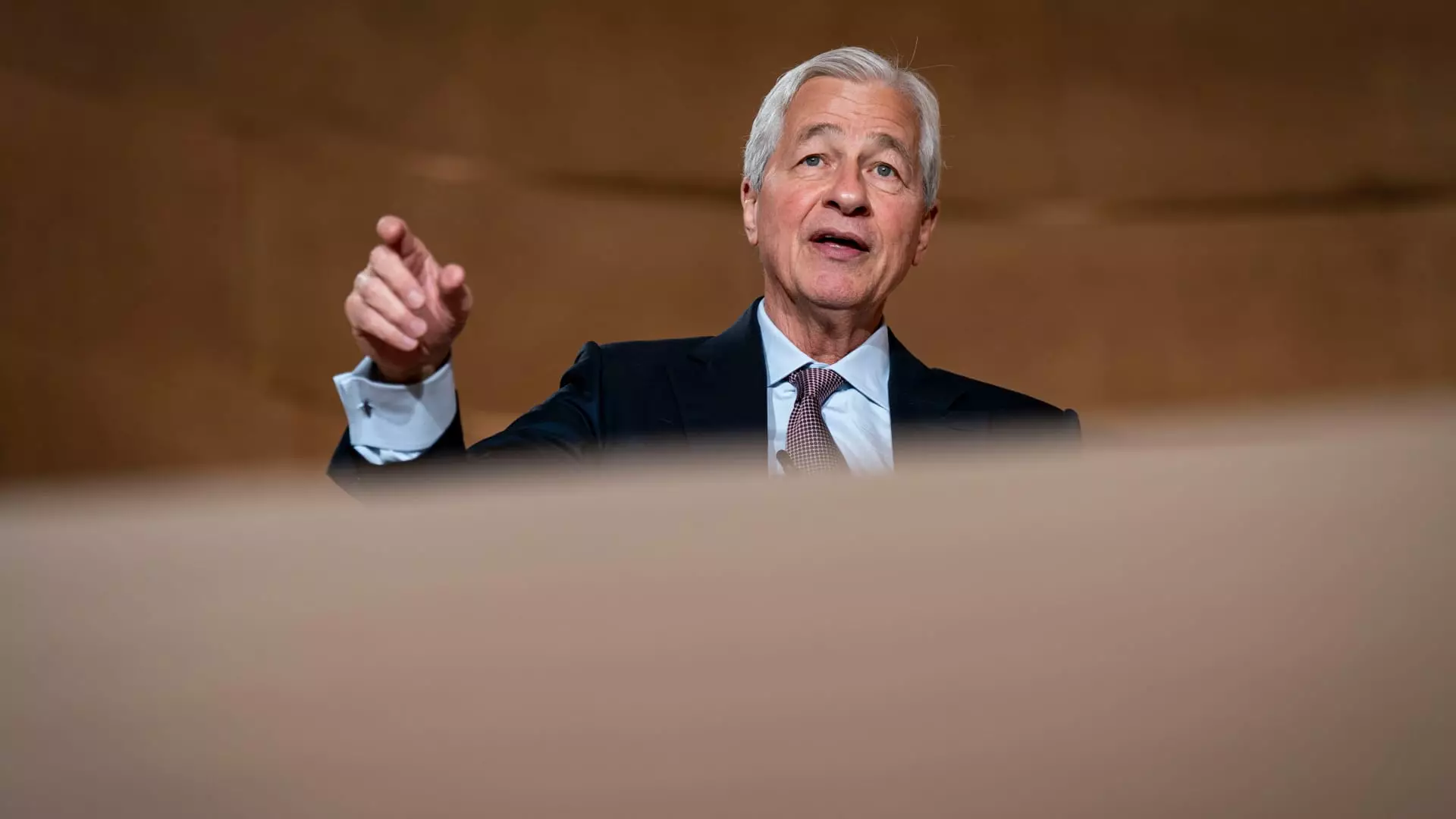In a world that seems to be longing for comfort amid chaos, Jamie Dimon, the CEO of JPMorgan Chase, stands as a voice of caution. His recent remarks during the bank’s investor day pointed to a troubling disconnect—a gap between market optimism and the harsh economic realities that may lie beneath the surface. The mere fact that Dimon feels compelled to remind stakeholders of the lurking dangers—namely soaring U.S. deficits, rising tariffs, and geopolitical strife—screams of an economic environment teetering on complacency. Financial markets, buoyed by positive sentiments and fleeting recoveries, are failing to grasp the fact that ignoring these issues could lead to devastating consequences.
The Mirage of Recovery
Dimon’s assertion that stock markets are reflecting an exaggerated sense of security is poignant. The quick rebound of market indices from their April lows might feel encouraging, but it paints an incomplete picture. With a staggering national deficit and ambivalent central banks, the risks of inflation and potential stagflation are far being underestimated. This carefree attitude is troubling; one can argue that it creates a speculative bubble, wherein investors are blinded by temporary gains while failing to address the robust financial realities plaguing the nation. The excitement around an upturn in stock prices can serve as a euphoric distraction, preventing the necessary discourse surrounding the deeper implications of fiscal irresponsibility.
A Downgraded Future
Moody’s recent downgrading of the U.S. credit rating should have sent shockwaves through the economy, yet a sense of apathy seems to persist. Dimon’s observations regarding the drop in S&P 500 earnings estimates resonate with an unsettling truth. It signals a troubling future where companies begin to retract guidance amidst growing uncertainties. The dynamic nature of this economic landscape is alarming; predictions for zero earnings growth, already an unendearing tableau, compel one to wonder if we are actively steering towards a financial quagmire. The lack of urgency to address these systematic issues is both puzzling and disheartening, reminding us how fleeting market confidence can be.
The Trend of “Wait-and-See”
The hesitance demonstrated by corporate clients to proceed with acquisitions—termed “wait-and-see” mode—reflects a broader sentiment that could have staggering implications on the investment landscape. The prospect of a mid-teens decline in investment banking revenue underscores the intangible weight of uncertainty. As one of Dimon’s deputies mentioned, the inconsistent patterns within trading revenues, coupled with declining investment activities, raise questions about the overall sustainability of these market boosts. It’s as if we are on a tightrope, with the slightest misstep triggering a tumble into economic peril.
The Illusion of Control
In stark juxtaposition, Dimon’s candid acknowledgment of the complacency surrounding central banks reveals a stark truth: we are overlooking the limitations of our financial architecture. The belief that central bankers can manage and rectify crises without substantive action is dangerously misleading. It showcases a profound misunderstanding of the complexities innate in the current economic system. By framing the debate around capricious central control, we risk creating a false sense of security, rendering ourselves unprepared for the inevitable turbulence ahead.
The Transition of Leadership
Lastly, as Dimon hinted at his potential exit from the CEO role, his remarks carry an air of skepticism about the future leadership of JPMorgan Chase. The leadership transition embodies not only a passing of the baton but also a critical juncture for the bank’s direction amid uncertain economic waters. The potential successorship of individuals like Marianne Lake signifies a change, but what remains consistent is the need for agile, forward-thinking leaders equipped to navigate an economic landscape laden with challenges.
Complacency in the face of looming economic realities can lead to a daunting reckoning. Dimon’s insights stand as a crucial warning, urging us to address the systemic risks inherent in our financial environment rather than seek comfort in transient market victories. If we are to forge ahead in any meaningful way, we must confront the pressing issues with candor and resolve rather than retreat into the shadows of illusionary recoveries.


Leave a Reply